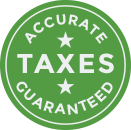Fourth Quarter Estimated Tax Payment
The final estimated tax payment for the 2025 tax year is due on January 15, 2026. This deadline applies to clergy and represents the fourth and final quarterly estimated payment for the year. Why Estimated Taxes Exist The U.S. tax system is a pay‑as‑you‑go system. The IRS expects taxes to be paid as income is earned,…
Tax Season Scams: How to Avoid Identity Theft and Tax Scams
As we begin a new year, tax season is quickly approaching—and unfortunately, it’s also a peak time for criminal activity. During tax season, scammers and identity thieves increase their efforts to trick individuals into sharing sensitive personal and financial information, such as Social Security numbers, dates of birth, and tax records. With this information, criminals…
2026 Mileage Rates Announced
If you use your personal vehicle for ministry, business, charitable work, medical appointments, or certain moving situations, you may qualify for a mileage deduction on your tax return. The IRS allows taxpayers to deduct vehicle expenses when the driving is directly connected to specific qualifying purposes, and mileage is often the simplest way to calculate…
Understanding 529 Plan Withdrawals
How 529 Withdrawals Work Before you withdraw anything, you must verify that the expense meets IRS rules for qualified education expenses. These include: Tuition & mandatory fees At any accredited college, university, trade school, or graduate program. Room & board Student must be enrolled at least half-time. Books, supplies: You can withdraw up to the…
2025 Year-End Tax Strategies
Year‑End Tax Strategies: A Practical Checklist As the end of December approaches, here are key tax‑saving moves to review and complete before year‑end. Make Charitable Contributions Individuals may generally deduct charitable gifts up to 50% of their adjusted gross income. Donate unused household items or clothing to qualified charities; keep receipts, canceled checks, and any…
2026 Housing Allowance Guide
The Housing Allowance Exclusion permits clergy to set aside a portion of their compensation specifically for housing expenses, shielding that amount from federal income tax. By reducing taxable income, clergy can significantly lower their overall tax burden. Although this exclusion is one of the most valuable tax advantages available to ministers, it is also one…
Understanding Taxable Income Rules for Sabbatical Pay
Sabbatical payments made to a minister are generally treated by the Internal Revenue Service (IRS) as taxable compensation rather than exempt benefits. Although sabbaticals are often intended for rest, study, or renewal, the IRS views the payments as primarily personal in nature. Because the minister remains employed during the sabbatical, any salary continuation, stipend, or…
Are You a Household Employee?
Are You a Household Employee? When you work in someone’s home—whether as a nanny, caregiver, housekeeper, or gardener—you may wonder how the IRS classifies your role. Understanding whether you are a household employee or an independent contractor is crucial because it directly affects your tax responsibilities and your employer’s obligations. What Defines a Household Employee?…
Determining the Fair Rental Value of Clergy Housing
A common approach to estimating the fair rental value (FRV) of clergy housing is to apply a fixed percentage—often 12% to 15%—of the home’s current value. A more reliable alternative is to use methods such as a comparable rental analysis or a comparable sales evaluation performed by a qualified third party. Under IRC § 107,…
Kingdom Impact 5 Podcast – Early Winter Recap
In November and December, Kingdom Impact 5 Podcast rolled out 4 episodes you won’t want to miss. In under 5 minutes, the Kingdom Impact 5 podcast takes a deep dive into a topic to help your ministry stay compliant, confident, and financially strong. From IRS regulations and payroll best practices to bookkeeping tips and tax…





